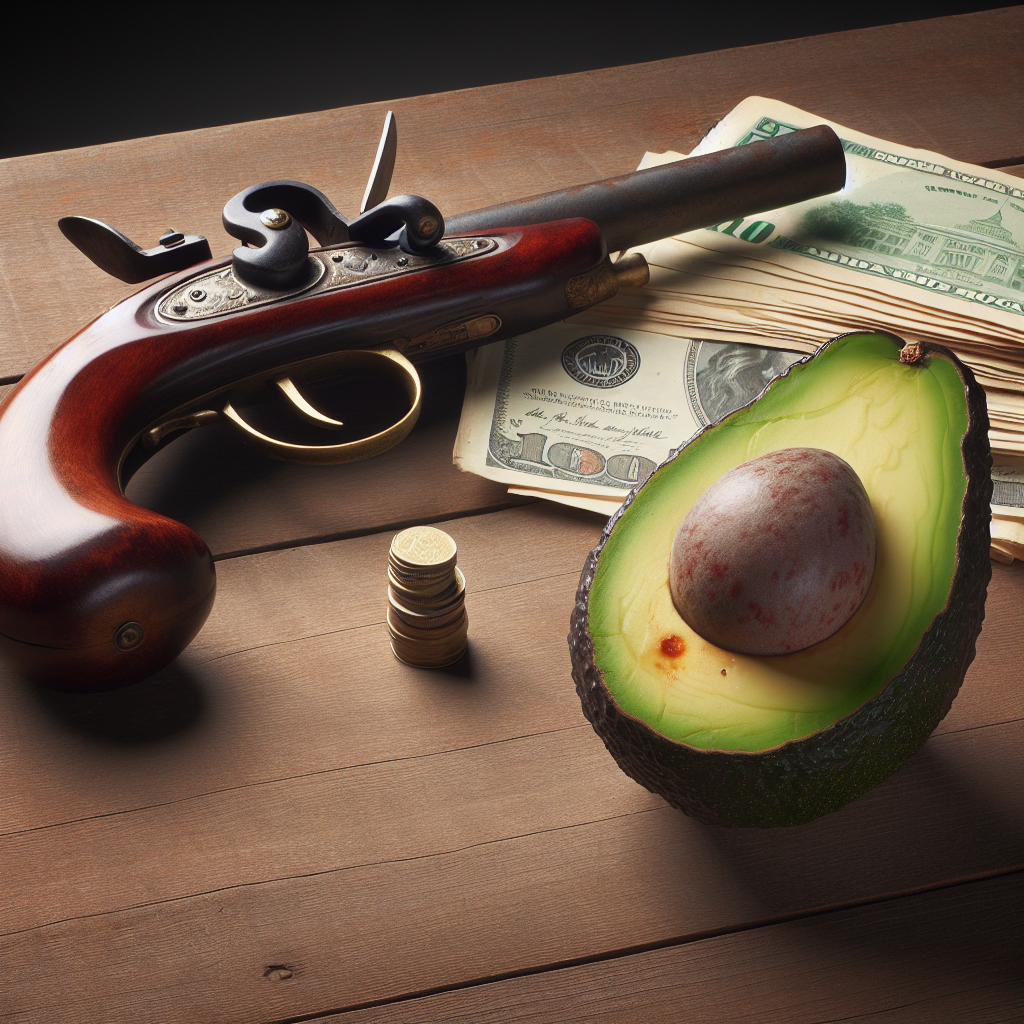When two US avocado inspectors were assaulted and detained at a police roadblock in Michoacán, Mexico last month, it triggered a costly international crisis.
The US halted all avocado imports from Michoacán for over a week, costing Mexican growers tens of millions of dollars and temporarily increasing the price of a carton of avocados in the US by 40 percent, according to RaboResearch Food & Agribusiness.
After weeks of diplomatic and agricultural negotiations between the US and Mexico, the massive cross-border trade has stabilized. The US Department of Agriculture reported that export levels returned to normal at the beginning of July.
This incident highlighted the precarious nature of the avocado industry in Michoacán, a region that provides most of the world’s avocados but is also one of Mexico’s most dangerous states, heavily influenced by cartel power.
US and Mexican officials are now considering new changes to the strict processes governing how avocados can be exported to meet the growing demand in the US. Industry groups and advocates are urging for increased oversight.
Avocados, known as “green gold,” are a significant business. Of the nearly 2.7 million metric tons of avocados grown in Mexico last year, 81 percent were exported to the US, valued at $2.7 billion.
Nearly three-quarters of Mexican avocados come from Michoacán, where the volcanic soil is ideal for farming. However, the area is plagued by cartel violence, with a homicide rate more than twice the national average.
Research by the Global Initiative Against Transnational Organized Crime found that the expansion of the avocado market in Michoacán is intertwined with violent groups and corrupt authorities. Criminal groups often illegally burn and log protected forests and bribe officials to change land use permissions for commercial activities. An academic article noted that 80 percent of avocado orchards in Michoacán were established illegally through unauthorized land use, later legalized through corruption.
Cartels regularly extort producers, and local police forces often serve as security for the avocado farms. Heavily armed militias known as “autodefensa” groups also patrol the farms.
Mexican officials downplayed the June incident, claiming it was nonviolent and unrelated to organized crime or the inspectors’ work in the avocado industry. The inspectors, who were Mexican citizens working for the USDA Animal and Plant Health Inspection Service, were stopped and detained by police protesting a pay issue, according to Michoacán Governor Alfredo Ramírez Bedolla.
US Ambassador to Mexico Ken Salazar, however, stated that the men were assaulted. The Michoacán state prosecutor’s office has opened an investigation.
Since the US began allowing avocado imports from Michoacán in 1997, APHIS employees have inspected avocado orchards to ensure they are pest-free. About 100 inspectors operate within the state, visiting groves and packing facilities to certify the fruit, making them vulnerable to corruption and violence.
In 2022, exports of Mexican avocados were halted for several days after a US inspector in Michoacán received a threatening phone call. Following both incidents, Mexican leaders have advocated for Mexico to take over the inspections, with Mexican President Andres Manuel Lopez Obrador criticizing the US decision to halt exports as “arrogance.”
Mexican Agriculture Minister Victor Villalobos said the Mexican government is prepared to perform the inspections to avoid export stoppages. US State Department and USDA officials have considered the possible change, though Ken Melban, vice president for industry affairs at the California Avocado Commission, expressed doubts about the integrity of such a program.
US and Mexican officials have also revisited discussions around blocking the export of avocados from orchards grown on illegally cleared lands. Despite support from leaders in both countries, no legal mechanism to enforce it has been decided. The USDA noted that their inspectors lack the authority to certify this issue.
“We’ve exposed something illegal and indefensible,” said Brad Adams, executive director of Climate Rights International. “The US can’t keep importing illegally harvested produce.”
